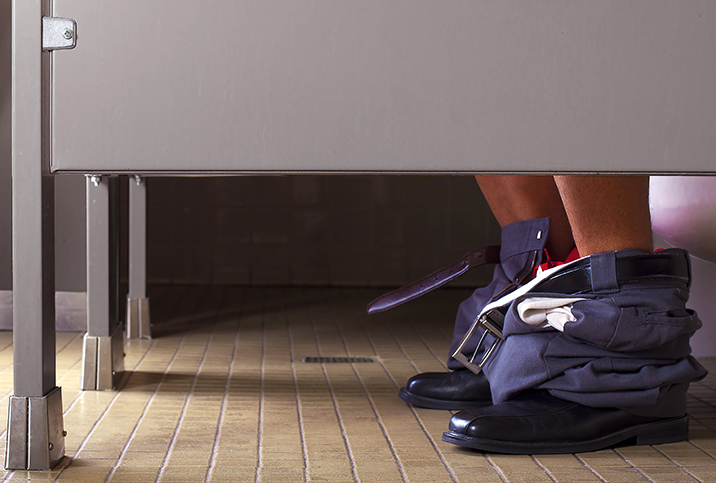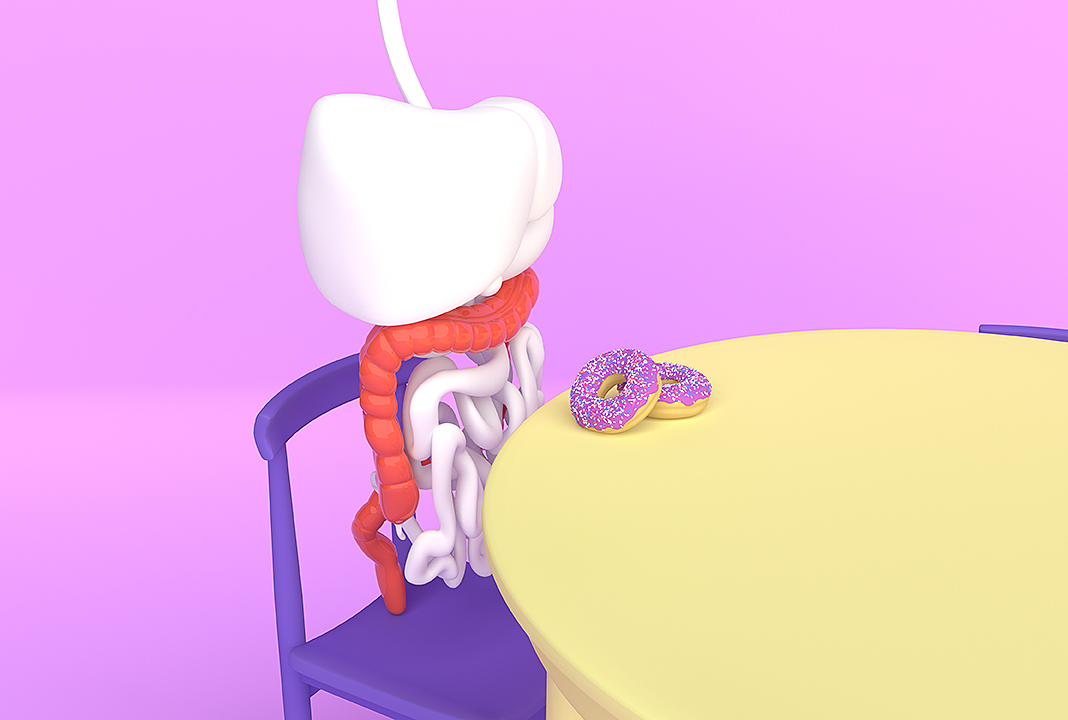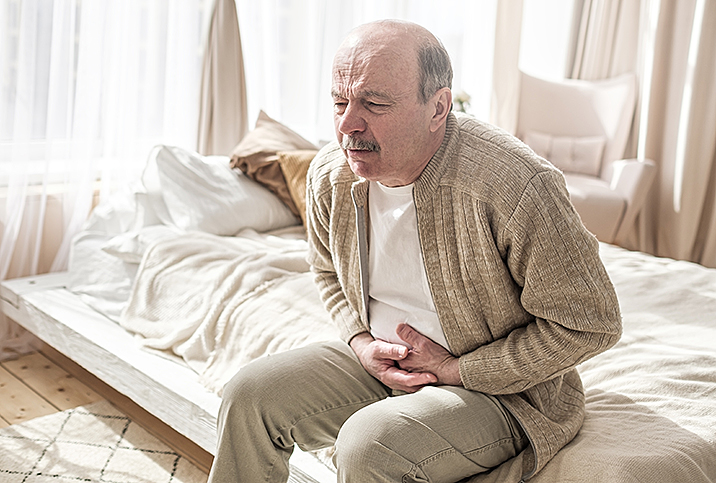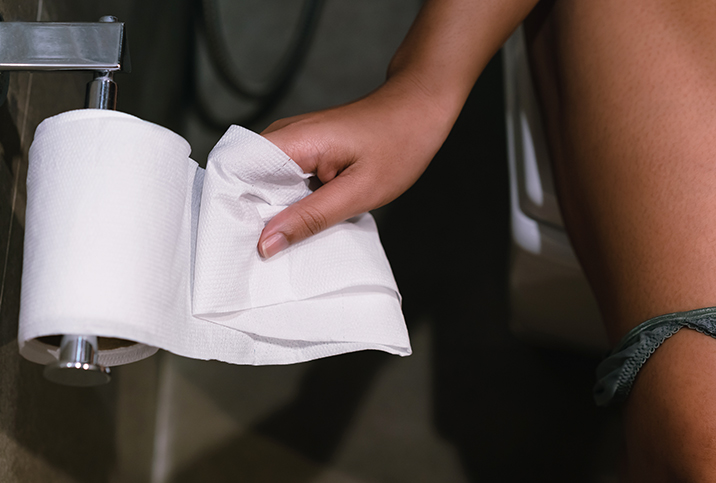Can Constipation Cause Erectile Dysfunction?

Constipation—that effect you experience when your gut's plumbing gets a little backed up—is something that happens to most people from time to time. If you have chronic constipation, though, there is a chance it could be contributing to issues in the bedroom, such as erectile dysfunction (ED).
While there's not a definitive link between long-term constipation and ED, some evidence suggests the two conditions may coincide, according to a 2012 study published in the Journal of Gastroenterology and Hepatology. A survey of 1,143 males in Asia revealed that chronic constipation was a larger-than-suspected problem among older men and, surprisingly, constipation was also an independent predictor of ED.
Can constipation cause erectile dysfunction?
What is chronic constipation?
Chronic constipation is diagnosed based on someone's individual symptoms, according to Mike Bohl, M.D., the New York City-based director of medical content and education at Ro, a direct-to-consumer telehealth company.
There is no defined length of time that must pass before someone is determined to have chronic constipation because everyone's bowel movement patterns are different.
Chronic constipation is diagnosed using a number of factors, said Diana Londoño, M.D., a urologist in Los Angeles and the founder of Physician Coach Support. Those factors include:
- Needing to strain to have bowel movements at least 25 percent of the time
- Having the sensation of incomplete emptying
- Feeling a sensation of blockage in having a bowel movement
- Requiring a maneuver to help have a bowel movement
Other symptoms that may indicate you have chronic constipation include pain while trying to pass stool and hard, dry stools.
Can constipation cause erectile dysfunction?
As Londoño and Bohl both pointed out, the 2012 survey found only an association between constipation and ED, not causation. However, there are commonalities that can cause symptoms of both as males get older, including age, medication side effects, decreased mobility, diabetes and neurological problems.
"This can both cause constipation and ED, but one is not the cause of the other," Londoño said.
Bohl indicated there are a few physical ways chronic constipation might lead to ED. First, anatomically speaking, the pelvic region of the body is a crowded space that contains muscles, the bladder, the prostate, the rectum and other glands. If you're constipated, your stool stays in the intestine and takes up space, further compressing everything around it.
"Depending on the degree of constipation, it's possible that an enlarged colon could compress the nerves and blood vessels that lead to the penis and make an erection possible," he said. "As a result, you could experience erectile dysfunction."
Bohl noted it's possible that the physical sensation of being constipated could be a hindrance to sexual activity as well.
"Constipation is uncomfortable and, at times, painful, and this can certainly get in the way of your libido, making it so you aren't as interested in sex," he explained. "Because of this, it may be harder to achieve an erection."
If you're constipated, your stool stays in the intestine and takes up space, further compressing everything around it.
Additionally, if you're constipated or have other stomach issues, your gut microbiome and serotonin may be impacted.
Translation? Without the right balance of hormones, your libido could be negatively affected.
The physical problems that link constipation and ED may also result from occasional bouts of being backed up, not just from chronic complications.
"If there is so much stool in your body that it's compressing nerves or blood vessels that supply the penis—even if it's temporary—it's possible that you could experience erectile dysfunction while it's happening," Bohl said. "Similarly, if you're too uncomfortable or in pain from occasional constipation, you might find that you have a lower interest in having sex and more difficulty getting an erection."
Chronic constipation and ED might share a common culprit, as Bohl explained that passing stool and getting an erection both require proper blood flow and nerve function.
"Thus, if you have a medical condition that causes damage to the blood vessels or nerves, such as diabetes, it is possible that the condition could result in both constipation and erectile dysfunction," he said.
Dehydration or medications you take regularly can contribute to both conditions as well.
Treatment options for constipation-caused ED
Any time you experience a new and persistent issue with your body, whether that's constipation, ED or something else, you should see a doctor. That's because ED can be a symptom of heart disease and signal a risk for a future heart attack, Londoño explained.
"When blood vessels get filled with cholesterol plaque, blood cannot flow into the organs," she said. "Thus, the penis will not fill with blood to lead to an erection. These are very small blood vessels, but the next vessels will be the heart, and when the lack of blood flow occurs, a heart attack can occur."
Bohl recommended people see a doctor if they experience pain or severe discomfort as a result of their constipation or for symptoms such as fever, weight loss or blood in the stool.
For chronic constipation and erectile dysfunction, treatment depends on the cause.
"If you have a separate condition that is causing both as symptoms, treating the underlying condition is one way to improve them," Bohl said.
He added that each condition should be managed on an individual basis, and treatment could include the following:
- Fiber supplements, stool softeners, laxatives and enemas
- Prescription medication for both constipation and ED
- Surgery
- Adjusting your sitting position when going to the bathroom
- Pelvic muscle training
- Keeping a food journal to identify specific foods that worsen constipation
- Erection devices
Lifestyle changes can help both constipation and erectile dysfunction. Bohl pointed to a healthy diet that emphasizes plant-based foods and daily physical activity as beneficial in the improvement of both conditions.
If you experience occasional constipation without any other symptoms, you can try at-home treatments, such as drinking more water and taking over-the-counter fiber supplements, stool softeners or laxatives. Enemas may also be helpful, but you should check with your doctor before trying one.
After a week, if no at-home remedies are successful, you should see a doctor.
"You're the judge of your own body, and if you feel something is off, it's time to see a healthcare provider," Bohl said.
If you don't have a regular provider, taking that first step can be difficult. Fortunately, more physicians than ever have implemented telehealth appointments, on the phone or through video. Giddy telehealth makes it easy to get connected to a qualified healthcare professional who can help with a variety of conditions, and many of them offer same-day appointments at affordable rates.


















